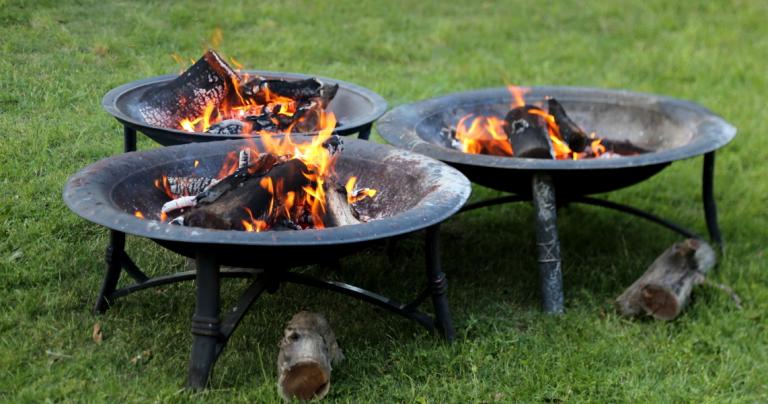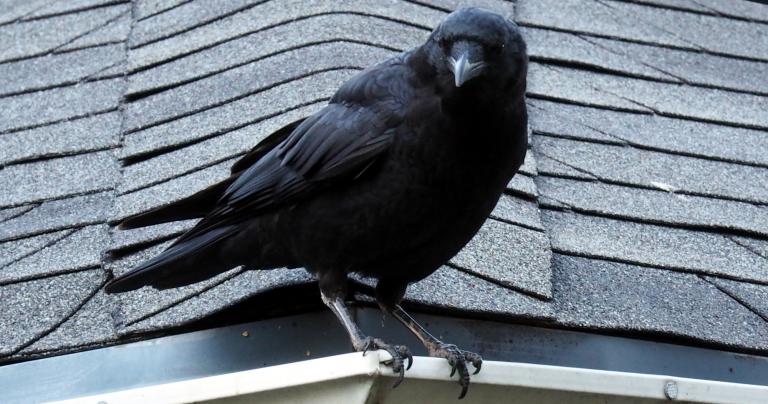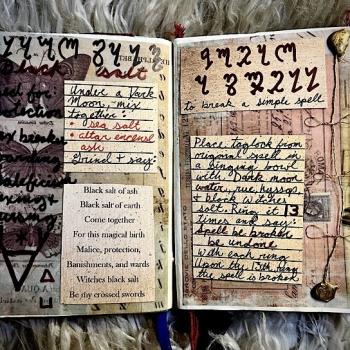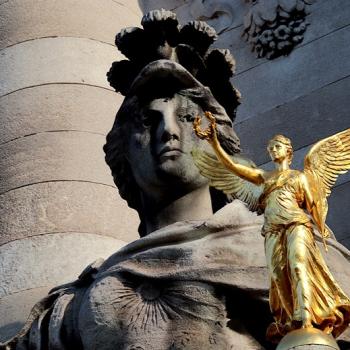The last two posts have addressed questions from this month’s Conversation Under the Oaks Q&A. Here are the remaining questions.
“What do you think about people blaming everything wrong or bad on Trickster Gods? Some Pagans use them the way some Christians blame everything wrong or bad on the devil instead of human error or lack of human action.”
The comparison is accurate. For the most part, it’s intellectual laziness. It’s far easier to blame bad stuff on Loki or Coyote or the devil than it is to accept that sometimes bad things happen because you make bad decisions. It’s the same thing with conspiracy theories. Some people feel better believing the world is run by a cabal of evil geniuses than to accept that no one is in charge and we’re on our own.
Which is not to say that there aren’t evil people conspiring to do evil things – there are. But they aren’t pulling all the strings.
But also, this attitude is disrespectful to Trickster Gods. They aren’t evil. I love order, but without chaos the world would stagnate. In many traditions, it is a trickster who gives humanity fire, or magic, or even language. They know we can’t possibly use it without burning ourselves, literally or figuratively. And that provides them with amusement.
But in our failures, we learn. And then we grow.
So accept responsibility for your own mistakes. Blame human greed and fear for building oppressive systems, not deities you don’t like. And give thanks for the opportunities that come with chaos.
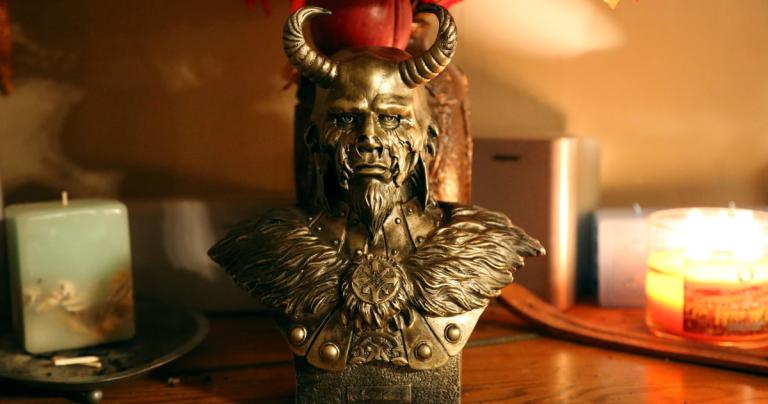
“What is the nature of Trickster deities and why might one wish to serve them or avoid them?”
I’ve never had a Trickster question before, and now I get two from two different people. Apparently October is Trickster month.
I can’t really speak to the nature of Trickster deities. I can speak to their area of responsibility, which is to keep us from getting too comfortable and too set in our ways. I don’t think they’re having fun at our expense so much as they’re really dedicated to their work and they really enjoy it.
I have a strong preference for order, and so I avoid Trickster Gods. A few years I told Loki “NO!” in no uncertain terms. He accepted my answer, although I had some backup to help (“this one is ours and we’re keeping him plenty busy”).
But that’s me. If you like chaos and the opportunities it brings, you might enjoy serving or working with one.
“How can a solitary with no established practice beat fear and reach out to the universe / gods / goddesses and believe that they are worthy of true connection to them?”
The short answer is to establish a regular spiritual practice. Make a choice. Build a foundation of reason and experience. Begin a devotional practice. And keep it up.
If you have religious trauma in your background, you will need to address it sooner rather than later. In 2015 I wrote Escaping Fundamentalism. It was geared toward people who grew up in a Christian fundamentalist environment, but the steps are the same whether you’re trying to move on from conservative Catholicism, aggressive atheism, or simply your own doubts and fears.
This takes time. If you’re young and grew up in a religiously neutral environment, it can take months. If you’re older, or if you have significant negative religious experiences in your background, it can take years.
But the best time to start is now. Speaking for myself, it has been – and remains – a ton of work. But it’s worth it a million times over.
“How does one welcome change that is at so deep a level that we have no conscious control over the outcome?”
This question – at least as I read it – has a strong Buddhist assumption behind it. Namely, that quiet equanimity is the proper response to all change. I’m a Pagan, not a Buddhist. Sometime welcoming acceptance is the best response to deep change. Other times the best response is determined and even violent opposition. The trick is knowing which approach to use in which situation.
A few years ago I came up with what I call the Willow Pentagram – five steps to deal with changes we find challenging.
- First, do no harm.
- Feel what you feel.
- Accept what is.
- Do what must be done.
- Return to center.
For example, I welcome the experience and perspective that comes with getting old. I do not welcome the declining physical capabilities. But I accept that they are, and I’m learning to deal with them.
“How does magic work, if it can be explained?”
Countless volumes have been written about magic over the centuries, but the vast majority of it has been from the perspective of “how do I do it?” not “how does it work?” If it works, does it really matter how? But in our modern materialist world, if something can’t be explained “rationally” then we assume it can’t exist, even if it’s staring us right in the face.
Still, that’s the environment in which we work. And I am an engineer – I want to know how everything works. I’ve thought about this a lot… probably more than I should.
I have a three-fold model for how magic works. Sometimes it works by the manipulation of unseen forces. Sometimes it works by the intercession of Gods and spirits. Sometimes it works by psychological programming. And sometimes it works by a combination of two or all three of those means.
Alternatively Dr. Dean Radin has proposed that magic works because consciousness is fundamental.
Will we ever know exactly how magic works in the same way we know how electricity works? Probably not. Then again, how many of us really understand electricity? But we keep on using it anyway.
“Is magic effective if someone else performs a working on one’s behalf (even if that person does not know you and does it as a commercial service), or must magic always be done by oneself to be effective?”
Interesting question. I usually hear people claim the opposite, that magic worked for yourself will never be effective. I don’t think either of those are true. Magic is magic. If it’s done well, it works. If it’s done poorly, it doesn’t.
The advantage of doing magic for yourself is that you can keep doing it over and over again, taking a step by step progressive approach.
The advantage of hiring a magical professional is that they’re likely to have expertise you don’t, and they can bring an objectivity to the working that you’re can’t, because you’re too close to the situation.
Choose the right approach for your situation.
“What is the relationship between Nature and the Gods? And between the Gods and the cosmic order?”
I think you’re probably asking an ontological question that would be better posed to a philosopher than to a Druid and priest. But you asked me, so…
As I see it, Gods are the mightiest of beings, but They are beings, not being itself. They participate in being itself, as do humans, as do all living things.
Some Gods are the personification of natural forces. Others aren’t. Some Gods help maintain the cosmic order. Others disrupt it.
Did the Gods always exist? Can They die? Did They create the universe in which we live? I don’t know, and I don’t think much about these questions – they have little impact in my mundane life or in my spiritual life.
But they can be fun to contemplate. Just bring whiskey.
Candy Wilcox McKinney asks “Most Pagans believe in being able to call upon the ancestors, to honor them and be helped by them. Also a lot of us believe in reincarnation as part of the great circle of life, death, and rebirth. I’ve always wondered how the spirit of my ancestor can be in the Otherworld and be already reincarnated at the same time. Or once they have been reincarnated will their presence in the Otherworld cease to exist?”
This is another deep question with no easy answers.
We know that time runs differently in the Otherworld than in this world. Perhaps it also runs on parallel tracks, so that a person can simultaneously be alive in this world and also in the Otherworld. I’m not particularly fond of that idea, but it’s possible.
I tend to think that we usually spend more time (by this-world standards, anyway) in between lives than living in this world. So when we call on our ancestors, the odds are good they’re there and not here. By the time they’re ready to be reincarnated, everyone who knew them has joined them in the Otherworld.
But this is all speculation. As with the question above, it can be fun to contemplate, but it doesn’t have much impact on my day to day practice. I honor my ancestors and I call the names of those I know. And some of them respond.



